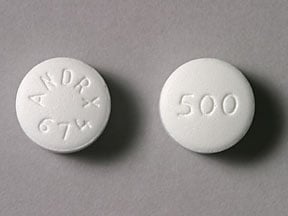My prescription
Edit
500MG, Metformin (60 Tablets)
Select pharmacy

CVS
$19.14
COUPON PRICE
Walgreens
$9.84
COUPON PRICE
Albertsons
$12.18
COUPON PRICE
Walmart
$15.71
COUPON PRICEMetformin savings card
Show this card to your pharmacist
Walgreens
$9.84
BIN
ID
PCN
GRP
019876
LHC26F3883
CHIPPO
LHX
Powered by
More prescriptions for diabetes type 2
More prescriptions for diabetes type 2
Price history for Glumetza (brand) & Metformin (generic)
60 Tablets, 500MG
Average retail price for Glumetza
Average retail price for Metformin
Average SaveHealth price for Metformin
Our price history data is based on aggregated prescription data collected from participating pharmacies in America. Our prescription data updates daily to reflect the latest price changes. If you notice a missing data point, it means there wasn't sufficient data available to generate a monetary value for that date.
We analyzed Metformin prices for (500MG, 60 Tablets) over the last 12 months. The average retail price was $50.35, while the average price using the SaveHealth discount card was $12.30. That's a savings of approximately 75.57% when using our Metformin coupon.
Compared to the generic version, Glumetza had an average price of $7897.22 over the same time period. With the SaveHealth savings card, Metformin is 99.84% cheaper on average than Glumetza.
*Retail prices are based on pharmacy claims data, and may not be accurate when we don't have enough claims.
Metformin ER (Metformin) dosage forms
Dosage Quantity Price from Per unit 500MG 60 Tablets $9.84 $0.16 500MG 30 Tablets $9.42 $0.31 500MG 90 Tablets $16.26 $0.18 500MG 180 Tablets $17.52 $0.10 500MG 360 Tablets $20.04 $0.06 625MG 30 Tablets $390.80 $13.03 750MG 30 Tablets $453.15 $15.11 750MG 60 Tablets $891.30 $14.86 850MG 30 Tablets $3.29 $0.11 850MG 60 Tablets $4.08 $0.07
| Dosage | Quantity | Price from | Per unit |
|---|---|---|---|
| 500MG | 60 Tablets | $9.84 | $0.16 |
| 500MG | 30 Tablets | $9.42 | $0.31 |
| 500MG | 90 Tablets | $16.26 | $0.18 |
| 500MG | 180 Tablets | $17.52 | $0.10 |
| 500MG | 360 Tablets | $20.04 | $0.06 |
| 625MG | 30 Tablets | $390.80 | $13.03 |
| 750MG | 30 Tablets | $453.15 | $15.11 |
| 750MG | 60 Tablets | $891.30 | $14.86 |
| 850MG | 30 Tablets | $3.29 | $0.11 |
| 850MG | 60 Tablets | $4.08 | $0.07 |
| 850MG | 90 Tablets | $11.37 | $0.13 |
| 850MG | 180 Tablets | $19.29 | $0.11 |
| 850MG | 270 Tablets | $21.44 | $0.08 |
| 1000MG | 30 Tablets | $9.68 | $0.32 |
| 1000MG | 60 Tablets | $10.36 | $0.17 |
| 1000MG | 90 Tablets | $11.03 | $0.12 |
| 1000MG | 120 Tablets | $11.71 | $0.10 |
| 1000MG | 180 Tablets | $19.29 | $0.11 |

